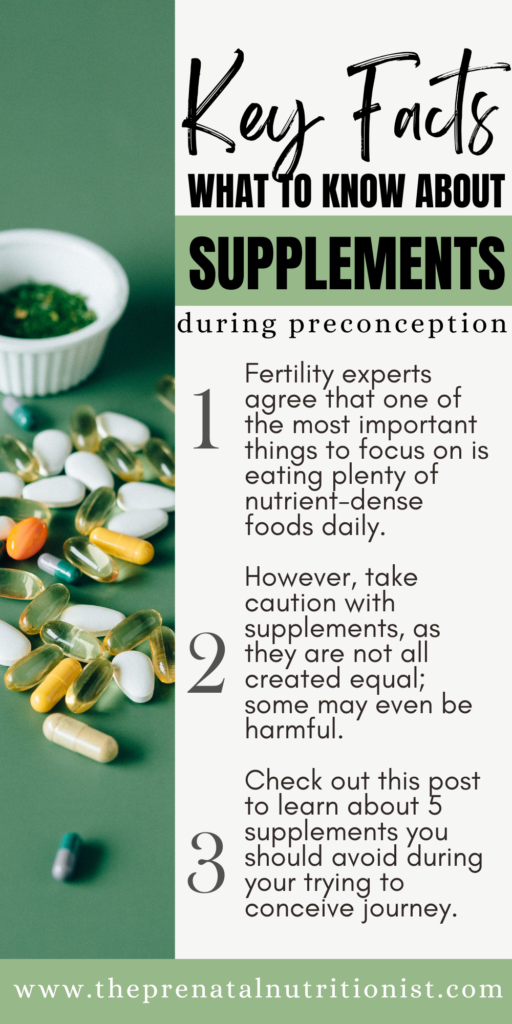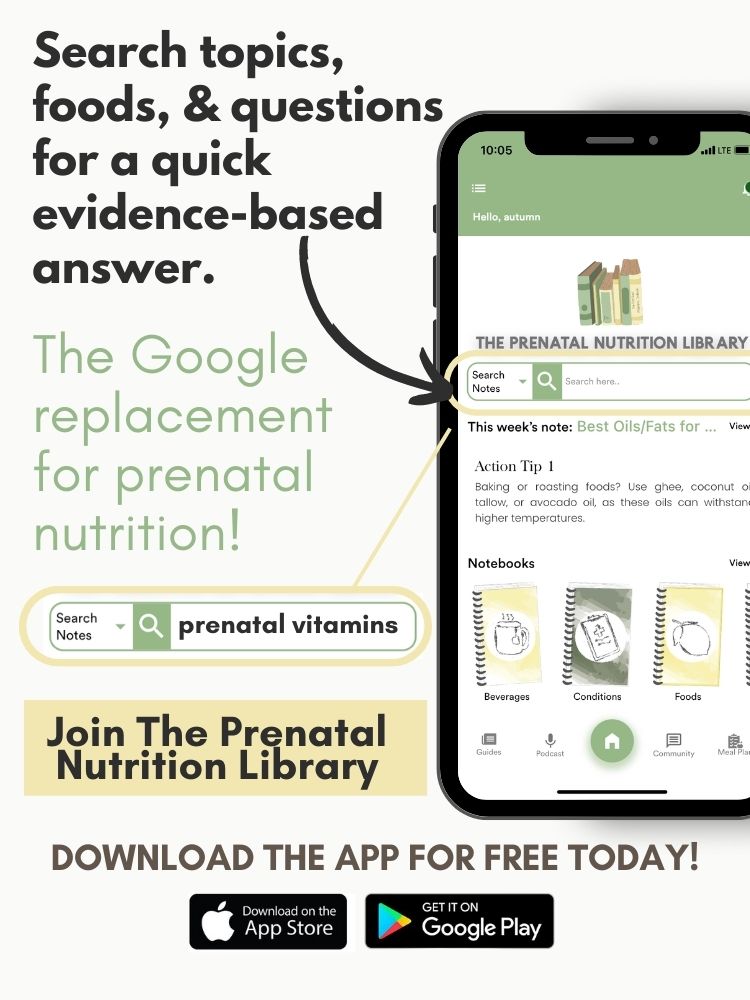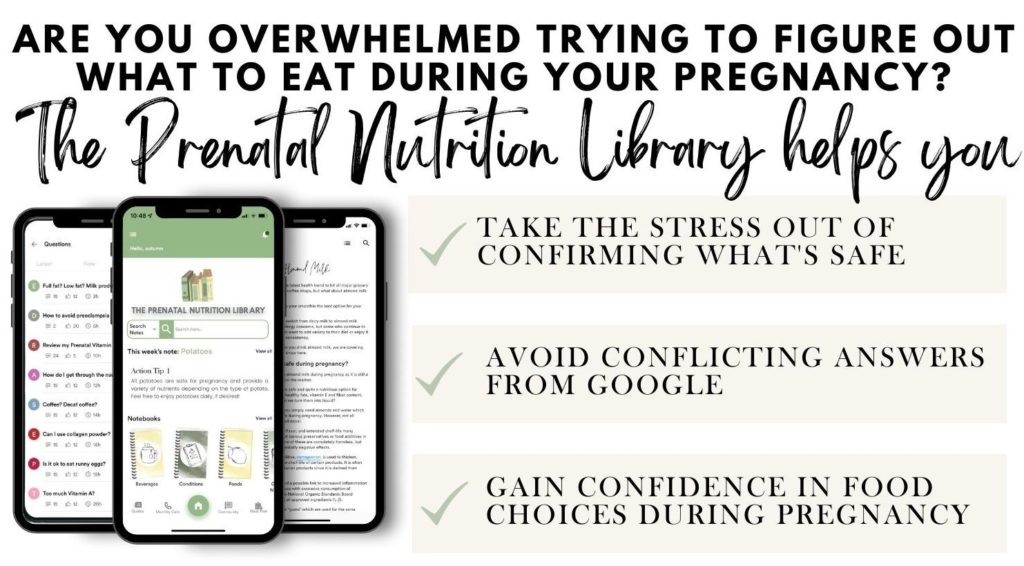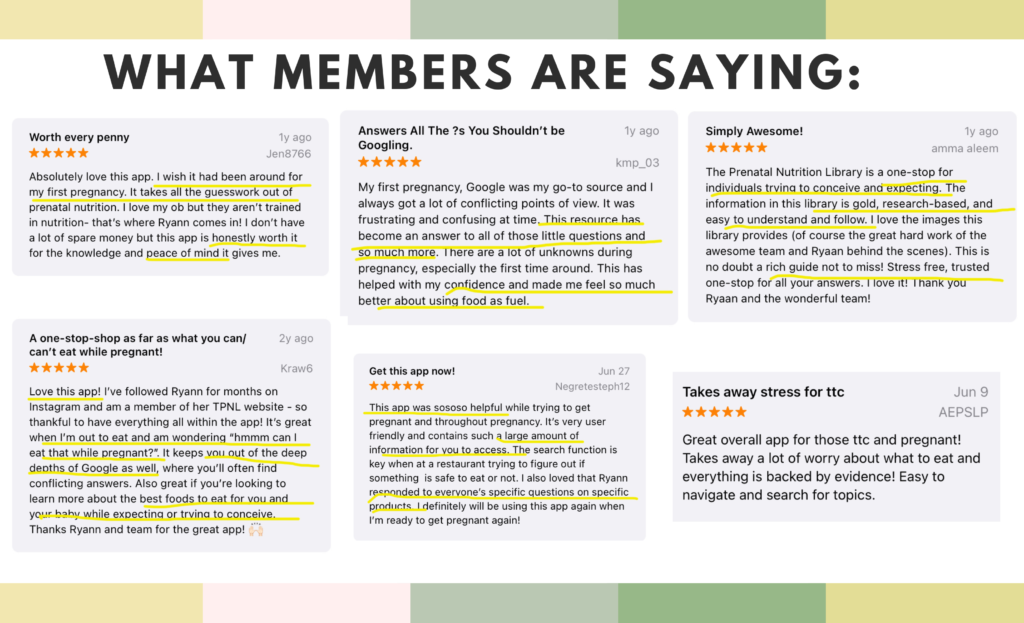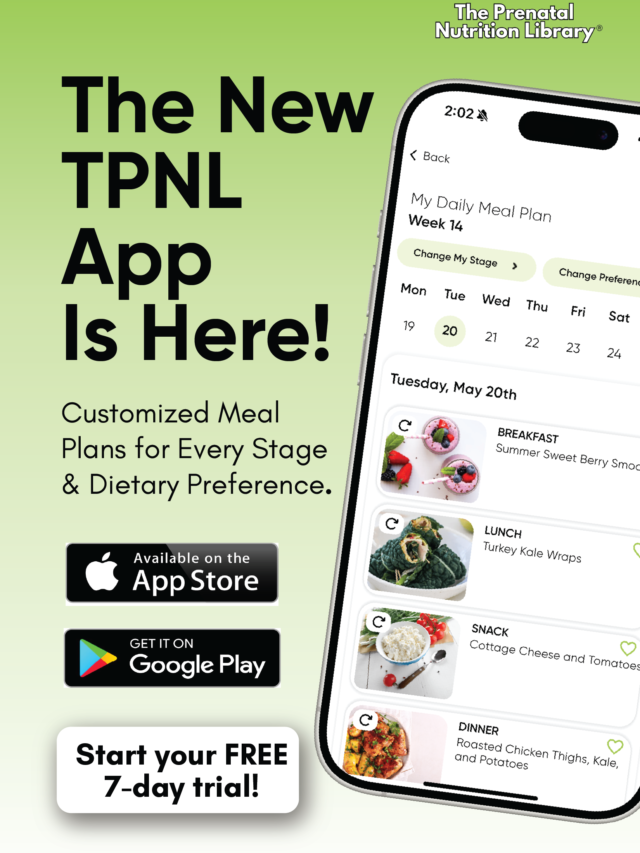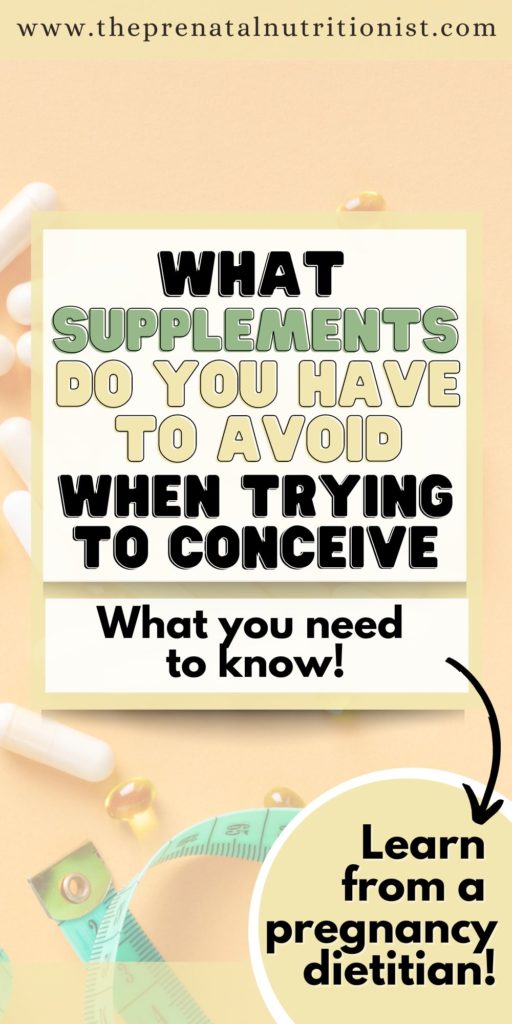
As any fertility expert will probably tell you, one of the most important things you can focus on is getting plenty of nutrients flowing through your body. Proper nutrition provides a solid foundation to support your reproductive system and hormone health the best you can.
The tricky part is that there is often a lot of noise, myths, and gimmicks in the nutrition world. Doctors, midwives, and dietitians recommend choosing a quality prenatal vitamin. But what about all these other so-called fertility-boosting supplements to help fill in the gaps?
The supplement industry is poorly regulated. Unfortunately, independent testing has found that some supplements on the market do not have ingredients listed on the label or have extra ingredients added. The bottom line is that not all supplements are created equal. This is especially true when you’re in the thick of trying to conceive (TTC) or pregnant.
In fact, some ingredients in popular supplements could interfere with your fertility. We also want to steer clear of supplements that could pose risks during early pregnancy. This could be before you realize you’ve got a little one on the way.
That’s why I’m diving in today to share a rundown on five supplements you’ll want to avoid when you’ve got baby-making as part of your plans.
5 Supplements To Avoid When Trying To Conceive
When you’re on that fertility journey, being super selective about the supplements you take is an absolute must! Certain ingredients could potentially negatively impact egg quality and hormones or be contraindicated during early pregnancy. You can click here to learn about the 10 nutrients pregnant women need, along with example food sources. But for now, here is a breakdown of the five supplements you’ll want to keep an eye out for:
Vitamin A/Retinol Supplements
Vitamin A is 100% an essential nutrient. It plays a highly important role in health, fertility, and your baby’s overall development during pregnancy. It also supports your immune system.
But, you can get too much of a good thing. Getting too much vitamin A in the form of retinol from supplements can actually be harmful. This is especially critical in the first few weeks of pregnancy. There is research linking high doses of vitamin A (retinol) during pregnancy to birth defects affecting babies’ eyes, skulls, lungs, and hearts while in the womb.
That’s why the safer play is to avoid high-dose retinol supplements during pregnancy. Choose a prenatal vitamin with some retinol. Additionally, get vitamin A from retinol and beta-carotene food sources like eggs, dairy, meat, sweet potatoes, carrots, and leafy greens. There is only an upper limit set for the retinol form of vitamin A. Beta-carotene does not have a known upper limit or “toxic” level. You will not overdo it on carrots or sweet potatoes.
Avoid standalone vitamin A/retinol supplements that pack excessively high vitamin A above the recommended daily value. The upper limit for retinol is 3,500 RAE per day. You are good to go as long as you’re getting sufficient vitamin A from your prenatal vitamin or food sources! And remember, we can get too much and too little, so it’s still an important nutrient to include in your diet during pregnancy.
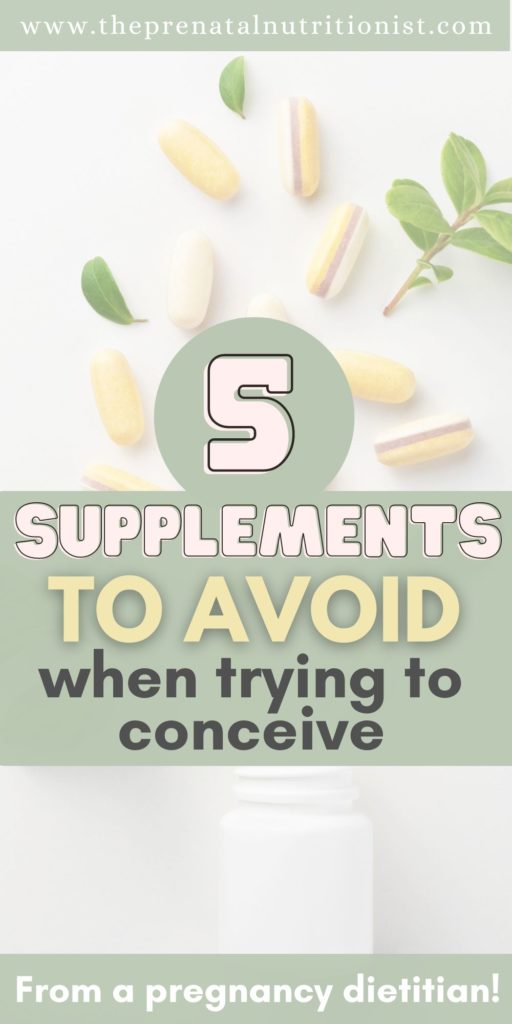
Herbal Weight Loss Supplements
I know wanting to drop “stubborn” pounds can be tempting when trying to get pregnant. However, many popular weight-loss supplements have herbs that lack safety data for pregnancy and fertility in general.
A lot of those plant-based “fat burner” and herbal formulas contain some pretty shady ingredients that aren’t proven to be effective. They could even interfere with ovulation, throw off your cycle regularity, or negatively impact your egg quality. Additionally, weight loss products often contain stimulants that can increase heart rate and blood pressure, which isn’t ideal when you’re trying to get pregnant.
Then, you’ve got the dehydrating diuretics that often sneak into those formulas, too. Meanwhile, getting dehydrated is the last thing you need when you’re trying to optimize your fertility and overall health for baby-making. Even if a weight loss pill claims to be “all-natural,” it’s safer to steer clear.
Instead, I always recommend focusing on sustainable lifestyle tweaks and habits like protein-rich balanced meals, regular exercise, and consuming nutrient-dense fertility-friendly foods from all the major food groups. These steps promote healthy hormones and egg health and help replenish nutrients that will be in high demand during pregnancy.
High-Dose Antioxidant Supplements
We’re constantly told that antioxidants are amazing for fighting oxidative stress and reducing inflammation. While getting antioxidants from whole food sources is a good idea, you can get too much of a good thing. Some antioxidant supplements may be beneficial, while TTC and some can backfire in a big way.
Research shows that while low-to-moderate levels seem to benefit fertility, mega-antioxidant doses from supplements like vitamin C and vitamin E may have the opposite impact. This is true for both male and female partners. High doses can disrupt the delicate balance of free radicals and antioxidants in the body too much. This balance is necessary for normal cellular function, but an imbalance can impair sperm function and ovulation.
I recommend sticking to a balanced, nutrient-rich diet with a wide variety of colorful plant-based and animal foods to get your antioxidants. Most high-quality prenatal vitamins should also help fill the gaps in your diet. If you’re curious about a particular antioxidant supplement, it’s best to work with your healthcare provider to determine whether it’s beneficial and appropriate and the correct dosage.
Some Traditional Chinese Herbs
Traditional Chinese medicine has been around for ages, but there are certain herbs you’ll want to steer clear of when you’re actively trying to get pregnant.
Black cohosh, that popular menopause herbal supplement, has been thought to have the possibility to mess with your hormones by mimicking estrogen’s effects. There’s also a lack of data to support its use for infertility. Then, you’ve got Chinese angelica root, which could potentially throw a wrench in your ovulation. Dong quai, wild carrot, and motherwort have also been linked to increasing the risk of miscarriage, which is definitely not what we want!
While data on all of these is hit or miss and inconclusive, it’s best to play it safe. Avoid any supplements or herbal formulas containing potentially questionable fertility-disrupting botanicals until after you’ve finished your preconception and pregnancy journey. Many of these herbs lack solid safety data and efficacy data. Stick to the proven basics, like adequate folate and vitamin B12, to help prevent neural tube defects.
Food first is the best approach. To help fill the gaps, fortunately, choosing a quality prenatal vitamin will help you fill in the missing nutrients you need. Preconception is a great time to start taking a quality prenatal vitamin. Folate, calcium, zinc, magnesium, B vitamins, choline, and many other nutrients support egg health, quality, and pregnancy. I discussed more on this topic in these blog posts: “Can you take magnesium while pregnant?” and “Is zinc safe during pregnancy?” Check them out!
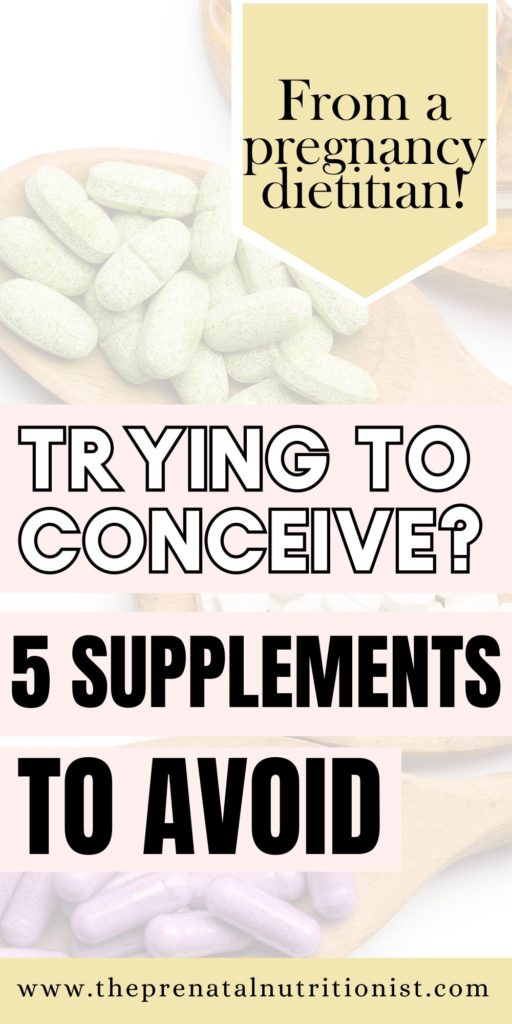
Ginseng
Ginseng is a star ingredient in many herbal weight-loss supplements. However, people take it for various reasons, including stress support, cognitive function, blood sugar control, anti-inflammatory effects, and energy levels.
This isn’t a well-studied area, but there are areas of concern. Ginseng potentially affects hormone levels, which can disrupt menstrual cycles and ovulation. There are also concerns that high amounts could cause fetal abnormalities or vaginal bleeding. This was a rat study that brought up these concerns, so it’s not something we can conclude from, but it’s worth caution.
Don’t just check the labels on your products, though; make sure to take a peek at what’s in your partner’s supplements, too. Many pre-workout products also contain ginseng, so it’s worth being extra vigilant.
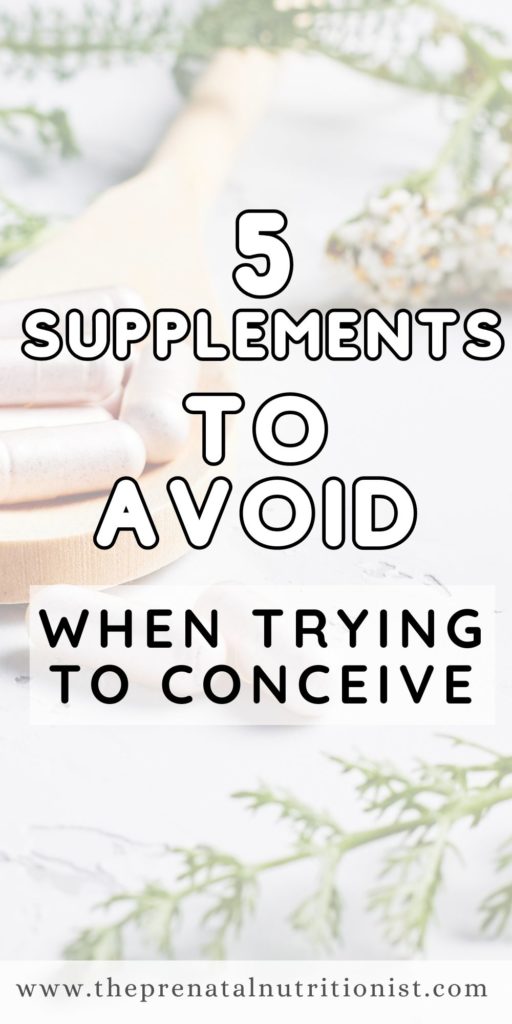
Carefully selecting what supplements you put in your body is crucial when trying to conceive.
I understand that it is not easy, and we want to do everything we can to support fertility while trying to conceive. You must be wondering, in between ovulation, timed intimacy, and gazing at those two lines saying ‘not pregnant,’ where is the time to get stressed about supplements, too?
Supplements have power and their place, but food first is always a good approach. From there, supplement needs are individualized. Options like inositol, NAC, CoQ 10, omega-3s, and a quality prenatal vitamin may be worth exploring after the diet has been optimized.
The Prenatal Nutrition Library (TPNL) app will help you eliminate the guesswork of preconception and prenatal nutrition. It is a life and sanity saver because it answers every “Can I take/eat…” question for every stage, from fertility support to childbirth!
Also, download the Free 1-Week Meal Plan that I have prepared for you. These recipes are well-balanced and delicious! You will consume essential nutrients needed to prepare your body for conception without the stress of planning it all. And did I mention that they are delicious and easy to make? It’s a win-win!
